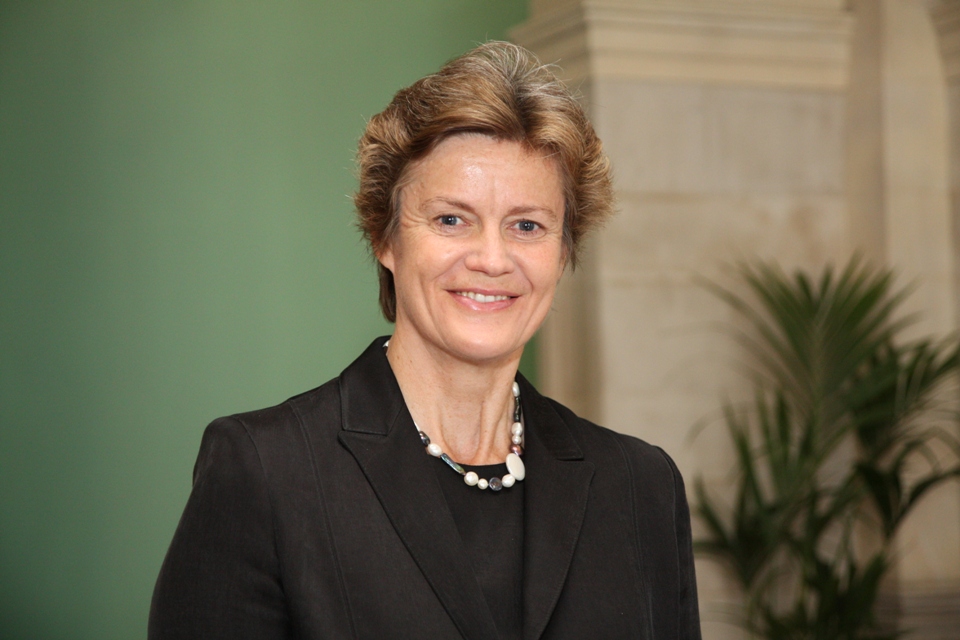The International Partners Group (IPG) have pledged more than $9.3bn to support the achievement of South Africa’s Just Energy Transition (JET). Members of the IPG include the United Kingdom (Chair), Denmark, the European Union, France, Germany, the Netherlands and the United States.
Following the formation of South Africa’s new Government of National Unity (GNU), reflecting the outcome of national elections in May 2024, President Ramaphosa appointed the Minister of Energy and Electricity as chairperson of the JET Inter-Ministerial Committee (IMC), made up of ten GNU Cabinet Ministers, to provide political leadership on JET implementation.
Institutional arrangements in South Africa for the JET have progressed in the last year, with relevant organs of state taking responsibility for all Portfolios of the JET Implementation Plan (JET IP) as approved by Cabinet in November 2023. This bodes well for increased alignment of JET plans and an acceleration of JET project pipelines. Funding, especially grant funding, is now flowing faster and with demonstrable impact.
South Africa’s energy crisis of the last two years has abated, with no loadshedding since March 2024, and energy sector policy, regulatory, and institutional reforms continue.
A second Energy Action Roadmap – Necom 2.0 – led by the Presidency is receiving extensive technical support from the IPG at the request of the South African government, working in collaboration with South African businesses and the Energy Council of South Africa. The roadmap has workstreams focussed on transmission, market reform, municipal utilities, and new energy generation.
In terms of energy market liberalisation, President Ramaphosa signed the Electricity Regulation Amendment Act on 16 August 2024, with the effective date to be confirmed. This is a significant step forward which will facilitate ongoing reform and competition in the energy market. The IPG and DFIs supported the South African government on this key piece of legislation.
The National Transmission Company of South Africa (NTCSA) has been legally unbundled from Eskom and began operations as a wholly owned subsidiary on 1 July 2024. Full financial and practical unbundling of the various elements within the NTCSA, including the central purchasing entity, energy service operator, and market operator is planned. A draft market code was circulated in mid-2024 for comment. The National Energy Regulator of South Africa’s (NERSA) board approved trading licences for four companies on 29 October 2024.
The South African Independent Power Producers Office (IPPO) launched two battery storage tenders for 1.2GW total, Bid Window 7 for 5GW of renewables, and Eskom issued a tender for a 30MW solar PV plant at the decommissioned Komati coal power station.
A recent survey here by Eskom, the South Africa Wind Energy Association and the South African Photovoltaic Industry Association noted that over 133 GW of renewable energy is in the pipeline and 66GW of projects are at an advanced planning stage, but the main impediment is grid access. The South African government has confirmed that the acceleration of the transmission grid buildout is a national priority. The NTCSA has released an updated Transmission Development Plan. The Minister of Energy and Electricity has said he will issue a ministerial determination on private sector transmission in the first quarter of 2025.
The Minister of Energy and Electricity is releasing an updated draft of the Integrated Resource Plan, factoring in extensive comments provided during the consultation process. The aim is for this to be approved by end November 2024.
Based on energy security considerations, Eskom took a decision to delay the planned decommissioning of three coal-fired power stations until March 2030, and to front-load repowering and community development at these sites ahead of the coal plant closures. The South African government thus submitted a project update proposal for these closures to the Climate Investment Funds (CIFs) Trust Fund Committee, including undertakings to achieve equivalent greenhouses gas (GHG) reductions to those listed in the original CIFs project across the coal fleet by 2030. The tasks ahead include developing a pipeline for the Just elements of the Accelerating Coal Transition Investment Plan (ACT IP), and progressing renewable energy repowering initiatives with the private sector.
President Ramaphosa signed South Africa’s Climate Change Act into law on 23 July 2024. It requires emissions targets to be set for high-emitting government sectors. Draft sectoral emission targets were published in April here but have not yet been promulgated. The Act requires carbon targets for companies, building on the current Carbon tax arrangements. The Act also establishes the multi-stakeholder Presidential Climate Commission as a statutory advisory body.
In February 2024, the South African Government announced tax deductions starting in 2026 of up to 150% of capital expenditure on new energy/electric vehicle (EVs) manufacturing investment in South Africa, recognising the global shift to EVs.
The JET Project Management Unit (PMU) in the Presidency and the IPG continue to work together to mobilise, track, and monitor funding progress and engage with stakeholders.
The PMU’s JET Grants Register, which is published on the JET web site here, is updated quarterly with the IPG to maintain transparency. Civil society organisations have identified the need for energy transition-affected communities to benefit more directly from JET grant finance.
The JET PMU launched its JET Funding Platform in October 2024. The platform receives and assesses JET project proposals from a range of stakeholders and then matches eligible JET projects with JET funders. Critically, the JET Funding Platform aims to bring in a wider set of grant funders to support the JET – including Corporate Social Responsibility funds, and philanthropic funds.
Similar to the JET Grants Register, the PMU plans to establish and publish a JET Investments Register to map all investment finance (grants, fiscal funds, concessional loans, and commercial finance) deployed for the JET in South Africa.
The PMU is producing a quarterly Monitoring, Evaluation and Learning report and setting monitoring targets for the JET. These will help determine whether the JETP is on track and how IPG projects contribute to the key JET Impact Indicators of GHG reductions, jobs /livelihoods created, and engagement of communities.
In August 2024, the JET PMU organised a large JET municipal conference of national and municipal officials, development finance institutions, IPG partners, and other stakeholders to identify municipal-level JET needs and opportunities, and to establish institutional arrangements for the Municipal JET Portfolio, now led by the South African Local Government Association.
The IPG hosted an engagement event with key local stakeholders in Mpumalanga to strengthen ties and present results of some of the ongoing projects in the province.
Important milestones ahead for South Africa’s energy transition are the Electricity Regulation Amendment Act coming into force, the introduction of secondary legislation and codes for energy market reforms, and the NTCSA being fully unbundled.
The IPG and JET PMU have both asserted that supporting public and private transmission grid capacity expansion through technical support and investment is a top priority.
The aim of the JETP remains to achieve the most ambitious target possible within South Africa’s Nationally Determined Contribution (NDC) range to the extent of the available resources and support. While the extension to the decommissioning timelines of three Eskom coal plants may put achieving the upper end of the NDC ambition at risk, the country’s energy sector reforms and rapid roll out of renewable energy investment over recent years is a positive trajectory. With expedited public and private sector investment in transmission grid capacity, there will be significant potential for South Africa to harness the 133 GW of planned private sector renewable generation; manage a socially and economically responsible retirement of the aging coal fleet; reduce emissions and take measures to diversify the economy of the coal belt. 2025 is also important as South Africa’s new NDC will be submitted.
The South African government has made clear its commitment to the Just Energy Transition. Investment sentiment is increasingly positive regarding the stable outcome of this year’s national elections. South Africa’s G20 Presidency in 2025 will provide the opportunity to showcase successful JET implementation and maintain the momentum on delivering on JETP priorities.
Experience of energy transitions across the world show that JET is a decades-long journey. The IPG and South African government reiterate their commitment to work in partnership to achieve the objectives set out in the JETP Political Declaration of 2021, the JET Investment Plan of 2022, and the JET Implementation Plan of 2023.








